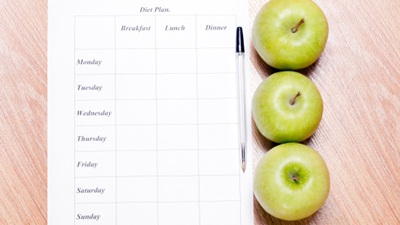
When you want to live a healthy lifestyle, you will grow curious as to how to eat healthy. When you begin at one end of the street, it must be a transition to get to the other end.
It is important to obtain the knowledge necessary to be able to eat healthy. Your mind, body, and emotions must also adjust to the changes you will be making. I believe it is important to have complete compassion for yourself. After all, you wouldn’t force someone else to eat a certain way, would you?
A healthy meal plan is very much up to you. It is a very individual experience based on your health goals and the lifestyle you are looking to achieve. Not every glass slipper fits every foot; however, there will be one that works for you when you explore, research, and dig deeper into who you are as a person. You might even be surprised at what your healthy meal plan looks like as your healthy changes come to fruition.
Here’s what I think an ideal healthy meal plan should look like.
Nutrient Guidelines
Many people who consume the standard American diet eat large amounts of protein and the wrong types of fats (saturated) and carbohydrates (refined). The amount of calorie percentages of macronutrients that health professionals recommend will vary; however the ideal healthy meal plan should include the following:
[ws_table id=”2″]
It also important that your macronutrients contain the right micronutrients your body needs, including fiber, vitamins, and minerals. If you are deficient in particular nutrients, supplements can also complement your diet; however, it is best not to rely on them. It is best to consult a nutrition professional to help guide you through the process to give you the peace of mind that you are doing it right.
After all, you don’t want to be taking supplements your body may not need or there might be something that works better.
Healthy Foods to Eat
Whole foods such as fruits, vegetables, whole grains, legumes, nuts, seeds, organic meats, poultry, and fish should be part of your healthy meal plan. Drinking water is also VERY important (a minimum of eight 8-ounce glasses of filtered water daily).
Essential fatty acids are also important for good health and they can be obtained through organic cold-pressed oils like extra virgin olive oil, avocado, ground flaxseed, fish, and omega-3 supplements.
Here are some other healthy meal plan guidelines:
- Choose organic food whenever possible to avoid chemicals and genetically modified (GMO) foods
- Purchase local and fresh food (a good way to do this is to visit farmers’ markets)
- Eat healthy foods that are in season
- Have a good mix of cooked and raw foods in your diet
- Eat a variety of nutrient-rich foods
Foods to Avoid
As much as possible, you should avoid certain foods in your diet. In addition to limiting your salt intake to about 2,300 mg a day (about a teaspoon), here are other foods to avoid:
- Refined sugar, artificial sweeteners (like aspartame), and high fructose corn syrup. Even limit natural sweeteners like honey or maple syrup
- Processed foods in general
- Sodas and coffee. They lead to many damaging physiological effects
- Trans fats (hydrogenated oils), and limit saturated fat intake to organic meats and organic dairy products.
- Homogenized, pasteurized, vitamin D-fortified dairy products.
- Food additives such as preservatives and artificial flavors and colors.
- Genetically modified (GMO) foods. Common ones include anything with soy, canola, and corn.
- Food or drink from the microwave. A toaster oven or tea kettle are healthier heating methods.
The FoodsForBetterHealth Bottom Line
I am making healthy meal plan suggestions based on experience and holistic nutrition education. I also understand that these are just guidelines and the healthy meal plan you choose should primarily be based on what works for you. It is a continuous journey to achieve your healthy meal plan and it is very important to listen to the clues your body tells you. The ability to listen to your body is often overlooked when it comes to the right healthy meal plan.
Sources:
Colbin, A., Food and Healing (Toronto: Random House, 1986), 132-141.
Haas, E., et al., Staying Healthy with Nutrition: The Complete Guide to Diet and Nutritional Medicine (New York: Ten Speed Press, 2006), 375.
“Holistic Nutrition: Feel Great, Increase Energy, Prevent Disease,” Holistic Wellness Basics web site; http://www.holistic-wellness-basics.com/holistic-nutrition.html, last accessed Feb. 28, 2014.












